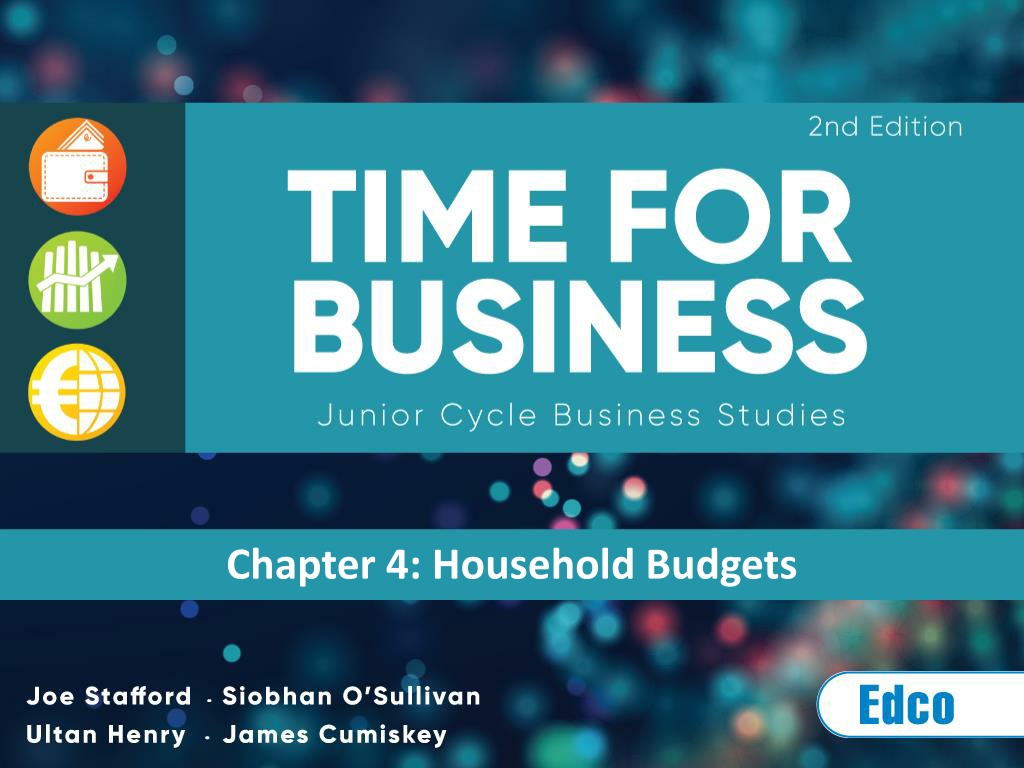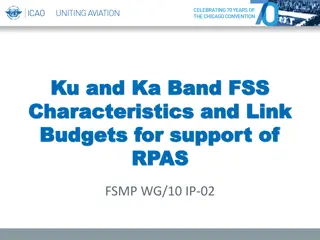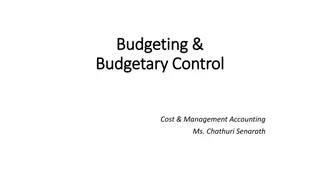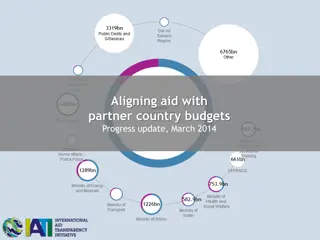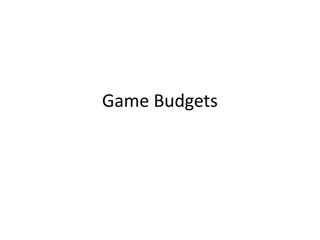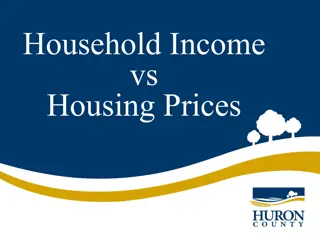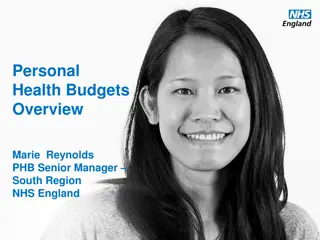Understanding Household Budgets: Key Concepts and Practices
Explore the importance of household budgets, learn to prepare a budget, differentiate between budget terms, understand the impact of deficits and surpluses, and discover strategies to manage budget shortfalls or excesses. Utilize tables and graphs to effectively analyze household financial health.
Download Presentation

Please find below an Image/Link to download the presentation.
The content on the website is provided AS IS for your information and personal use only. It may not be sold, licensed, or shared on other websites without obtaining consent from the author. Download presentation by click this link. If you encounter any issues during the download, it is possible that the publisher has removed the file from their server.
E N D
Presentation Transcript
Chapter 4 Learning intentions In this chapter you will learn to: Explain what a budget is and outline the benefits of preparing household budgets Prepare a household budget Differentiate between net cash, opening cash and closing cash Interpret a balanced budget, a budget deficit and a budget surplus Explain the financial consequences of budget deficits and budget surpluses Outline measures to deal with a budget deficit or surplus Use tables and graphs to illustrate key elements and trends in a household budget. Textbook page reference: 33
Chapter 4 What is a household budget? A budget is a financial plan of expected future income and expenditure. Textbook page reference: 34
Chapter 4 Why prepare a budget? Budgets help people to live within their means. It encourages people to think about their spending. Identify months when there are a lot of bills and expenses. Allow people to plan for large items of future expenditure and help them save for these items. A budget will show how much cash the household expects to have left over at the end of each time period. This is called their net cash. Textbook page reference: 34
Chapter 4 Household budgets A balanced budget refers to a situation where income exactly equals expenditure. Textbook page reference: 34
Chapter 4 Household budgets A budget surplus occurs when income is greater than expenditure. Textbook page reference: 34
Chapter 4 Dealing with a budget surplus 1. Save or invest it until it is needed 2. Use it to repay a loan 3. Use it to fund some extra expenditure Textbook page reference: 38
Chapter 4 Household budgets A budget deficit occurs when income is less than expenditure. Textbook page reference: 34
Chapter 4 Dealing with a budget deficit 1. Increase income 2. Make changes to expenditure 3. Avail of borrowing Textbook page reference: 38
Chapter 4 Dealing with a budget deficit 1. Increase income 2. Make changes to expenditure 3. Avail of borrowing Textbook page reference: 38
Chapter 4 A household budget A household budget combines the income and expenditure plans we looked at in chapters 2 and 3. Once you have noted your income and expenditure, you need to calculate the difference to see whether your plan will show a surplus or a deficit at the end of the month Textbook page reference: 37
Chapter 4 Creating the household budget Step 1: Subtract total expenditure from total income to calculate net cash. Step 2: Add opening cash to net cash to calculate closing cash. Step 3: Closing cash for one month becomes the opening cash for the next month. Textbook page reference: 37
Chapter 4 Analysing a budget Analysing a budget means looking at it closely to understand the key trends and patterns in the budget. Textbook page reference: 38
Chapter 4 Recap and review Can you? Explain what a budget is and outline the benefits of preparing household budgets? Prepare a household budget? Differentiate between net cash, opening cash and closing cash? Interpret a balanced budget, a budget deficit and a budget surplus? Explain the financial consequences of budget deficits and budget surpluses? Outline measures to deal with a budget deficit or surplus? Use tables and graphs to illustrate key elements and trends in a household budget?
Chapter 3 Credit slide Shutterstock
